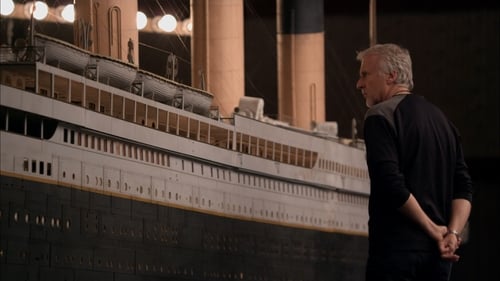Jonathan Halperin
History
Jon is an Emmy Award-winning director, writer and producer. He has produced, directed written and overseen documentaries for Amazon, PBS, National Geographic, Time, Inc., ITVS, TED, TechTV, Discovery, and for digital and theatrical distribution. In 2012, Halperin founded Room 608, with Mark Mannucci, a new media and documentary production company based in New York. Halperin and Mannucci most recently executive producers of the Amazon series Lore, a hybrid fiction/documentary series for Propagate Content and Valhalla Entertainment as well as the HHMI series I Contain Multitudes for PBS Digital. He won an Emmy for Best Science and Technology film in 2017 for A Year in Space and for Best Investigative Documentary in 2009 for Gorilla Murders.

Writer
In the decades after Bacon's Rebellion, an African man and an English woman - husband and wife - sing of their fate, their future as law by law, edict by edict, their family, their marriage, their love made illegal.

Producer
In the decades after Bacon's Rebellion, an African man and an English woman - husband and wife - sing of their fate, their future as law by law, edict by edict, their family, their marriage, their love made illegal.

Writer
Follow astronaut Scott Kelly's 12-month mission on the International Space Station, from launch to landing, as NASA charts the effects of long-duration spaceflight by comparing him to his identical twin on Earth, astronaut Mark Kelly.

Director
Follow astronaut Scott Kelly's 12-month mission on the International Space Station, from launch to landing, as NASA charts the effects of long-duration spaceflight by comparing him to his identical twin on Earth, astronaut Mark Kelly.

Writer
The Day the '60s Died chronicles May 1970, the month in which four students were shot dead at Kent State. The mayhem that followed has been called the most divisive moment in American history since the Civil War. From college campuses, to the jungles of Cambodia, to the Nixon White House, the film takes us back into that turbulent spring 45 years ago.

Director
The Day the '60s Died chronicles May 1970, the month in which four students were shot dead at Kent State. The mayhem that followed has been called the most divisive moment in American history since the Civil War. From college campuses, to the jungles of Cambodia, to the Nixon White House, the film takes us back into that turbulent spring 45 years ago.

Executive Producer
James Cameron brings together some the world's leading Titanic experts, including engineers, naval architects, artists and historians, to solve the lingering mysteries of why and how the 'unsinkable' ship sank.

Executive Producer
In 2009 a bizarre story spreads around the globe, reported as fact in the world’s newspapers: Josef Mengele – the infamous escaped Nazi concentration camp doctor, the Angel of Death, may have succeeded in his lifelong goal of creating a blonde, blue-eyed master race. An historian says he has evidence that Mengele’s bizarre experiments on twins may not have ended at Auschwitz, that his efforts to engineer an Aryan master race continued and succeeded while on the run in South America.

Writer
They are some of the biggest pyramids on the planet, millions of tons of stone and earth towering above the landscape in a display of massive wealth and power. But it wasn't the pharaohs that built these pyramids. This is the majestic ancient city of Teotihuacán, Mexico, home to one of the most powerful civilizations of its time. But why, around 750 AD, did the advanced civilization that created Teotihuacán suddenly vanish? The identities of its founders, the language they spoke and even the original name of the city are all unknown. DNA analysis of bodies from Teotihuacán shows they weren't Mayan, Incan or Aztec, but an entirely different civilization. It was assumed to have been a peaceful, utopian society, but the latest discoveries are revealing a much darker scenario. In the depths of Teotihuacán's pyramids, experts have uncovered vault after vault filled with curious human remains.

Producer
They are some of the biggest pyramids on the planet, millions of tons of stone and earth towering above the landscape in a display of massive wealth and power. But it wasn't the pharaohs that built these pyramids. This is the majestic ancient city of Teotihuacán, Mexico, home to one of the most powerful civilizations of its time. But why, around 750 AD, did the advanced civilization that created Teotihuacán suddenly vanish? The identities of its founders, the language they spoke and even the original name of the city are all unknown. DNA analysis of bodies from Teotihuacán shows they weren't Mayan, Incan or Aztec, but an entirely different civilization. It was assumed to have been a peaceful, utopian society, but the latest discoveries are revealing a much darker scenario. In the depths of Teotihuacán's pyramids, experts have uncovered vault after vault filled with curious human remains.

Associate Producer
Documentary on water usage and the growth of the American west, shown on PBS as a four-part miniseries




